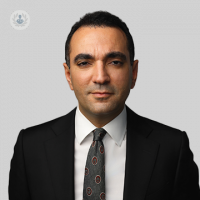How can I reduce my chances of getting HPV?
Autore:In this article below, Mr Osama Naji, a distinguished consultant gynaecologist, explains how people can get HPV, whilst also outlining the main symptoms associated with the common illness.

What is HPV?
Human papillomavirus (HPV) is a very common virus. Up to eight in 10 people get it within their lifetime.
There are over 200 different types of HPV, with 40 types affecting the genital area. It is worth noting that most do not cause any problems.
Can HPV cause skin problems? Is it linked to cancer?
Some forms of HPV can cause skin conditions such as genital warts. About 13 types are linked to cancer, with these being referred to as high-risk HPV.
How do people get HPV?
HPV is usually passed on through skin-to-skin contact. HPV affecting the genitals is caused by:
- oral, anal, or vaginal sex
- touching in the genital area
- sharing sex toys
What are the symptoms of HPV? How is it treated?
HPV does not have symptoms and there is no treatment.
How long can I have HPV for?
In the majority of cases, the immune system gets rid of the illness within two years. In other and in more extreme cases, HPV can persist for longer.
How can I reduce my chances of getting HPV?
There are plenty of ways that you can reduce your risk of getting HPV. These include:
- stopping smoking
- getting the HPV vaccine
- trying to have safer sex
If you would like to schedule in an appointment with Mr Osama Naji today, simply visit his Top Doctors profile.


